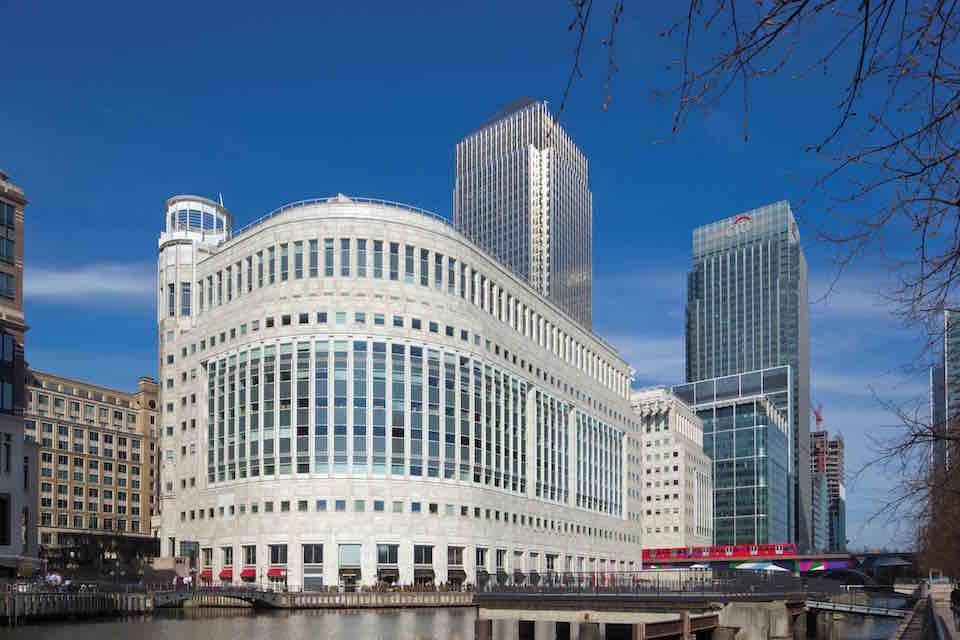
The way we work – how, where, and when – is changing radically as organisations embrace ‘smart working’.
‘Smart working’ is about making the most of advances in IT and more flexible use of premises, to allow better decision-making, faster communications and greater collaboration across boundaries.
And I’m proud to say that the Civil Service is also embracing these changes, becoming more efficient and effective in its approach to working cultures and the environment in which it works.
An integral part of ensuring that we are at the forefront of the smart working revolution is the Government Hubs programme, which will help achieve our ambition to deliver ‘A Great Place to Work’ as part of ‘A Brilliant Civil Service’ .
These hubs will bring together multiple departments into one building, in towns and cities across the country. They are about modern workplace design, state-of-the-art mobile IT and, above all, will encourage people to work productively from a variety of locations, rather than being tied to the same desk.
The Cabinet Office recently announced the location of a new Government Hub at Canary Wharf. This will see around 5,700 full-time civil and public servants from several different departments move from offices in Westminster to East London.

The new hub will be fitted out with the latest smart working requirements. That means a choice of work settings, each designed for different types of task, enabling people to speak to new colleagues every day and helping to reduce the floorspace that we lease. Staff will be able to use IT equipment to connect with colleagues who work in different offices, or who are working from home.
The hubs will be shared spaces, breaking down silos and encouraging greater collaboration across government.
Crucially, the flexibility that these smart working facilities will bring will contribute to productivity. It is a fact that people are more motivated and more productive if they have greater control over where, when and how they work, which is what smarter working endeavours to achieve.
The Canary Wharf Government Hub is the first of many such hubs that the Government Property Unit, in partnership with departments, will be rolling out across the country in the New Year.
So, hubs are the future, but there are many examples of government departments using smart working to their advantage already.
The TW3 (The Way We Work) Awards, which close at the end of this month, are looking to celebrate these successes. The TW3 programme and awards promote and celebrate excellence in work transformation, recognising achievements across the Civil Service. Departments, ALBs, individuals and teams that champion smart working can nominate themselves or others for an award by outlining the benefits that smart working has brought to their organisation and the measurable outcomes. The deadline for nominations is 31 December.
 We are committed to putting the modern Civil Service at the forefront of the smart working revolution and creating the best possible work environment as we deliver world class public services.
We are committed to putting the modern Civil Service at the forefront of the smart working revolution and creating the best possible work environment as we deliver world class public services.

8 comments
Comment by Dakota posted on
It is not about changing the IT etc. It should be about changing the culture, in general civil servants need to be more friendly.
Comment by Al posted on
So, will the new HMRC Regional centres also be used as Government Hubs (i.e. not just for HMRC)?
Comment by Sue posted on
Hey, they could be called the Government Offices for the English Regions! I suspect someone's getting a nice promotion on the back of this 'innovative' idea. When the Government Offices for the English Regions were abolished by the coalition government the Treasury said they were good value for money but Mr Pickles chose to call them a QUANGO and abolished them anyway. I loved my jobs at GOSE and GO East, working with good people who were striving to make a difference. How much money was wasted by closing them down? How many millions were wasted on redundancy payments? Oh I do so hate politics!
Comment by Anon posted on
"It is a fact that people are more motivated and more productive if they have greater control over where, when and how they work, which is what smarter working endeavors to achieve".
Perhaps having local offices that are easier and cheaper (for staff) to get to, might help motivate people and make them more productive, instead of putting us in centralized offices that are in difficult and expensive (for staff) to get to?
Perhaps there also needs to be some recognition that it is usually the staff who make things 'work' and not the change itself that 'works', even when we know that the ultimate aim of the change is to reduce the numbers of staff?
Comment by William posted on
With respect Mr Manzoni,
I have a number of questions on this new scheme and "A Brilliant Civil Service".
1. Isn't opening a new office like this in the "heart of London" reinforcing the gap between the "London crowd" and the post industrial heartland of England and Scotland? (as shown in the Brexit vote)
2. Couldn't a large number of these jobs not move to an area where there is higher unemployment?
3. In the MOD, our IT is a farce and not fit for purpose and unless there is a major investment in equipment and skills I cannot see one that will allow for "smart working".
4. The Staff survey clearly shows that you have a demotivated and unhappy Civil Service - but the "Brilliant Civil Service" and "A Great Place to Work" documents do not address the biggest complaints - mainly pay.
5. There have been articles that indicate that the civil service has problems recruiting and retaining skilled specialist at ALL grades (not just senior civil servants) - how do you intend to address that issue?
6. And finally - I am afraid I am old enough to remember when this was tried before when the Thatcher government promised over 6000 MOD jobs to move to Glasgow. Political pressure caused this to drop to less than 1500. How will you stop that happening again?
Comment by Bill posted on
I am pleased that the civil service can spend however millions on a new office in London with all new smart technology.
How about spending a few pounds on existing civil servants, and updating them from IE7 and Windows XP?
Comment by The Blog Team posted on
Thanks Bill. You will find more information about the East London office hub here: https://www.gov.uk/government/news/east-london-office-hub-announced-as-part-of-plans-for-a-more-modern-civil-service.
Comment by Bill posted on
Thanks for the reply, however selling me on what a good building it is, isn't what I was expecting.
I currently work in a department that is ran on an operating system that Microsoft discontinued support for in 2014, but in reality actually was out of date well before that.
Is it too much to expect that technology we use is actually able to cope with something other that 9 year old sofdtware?